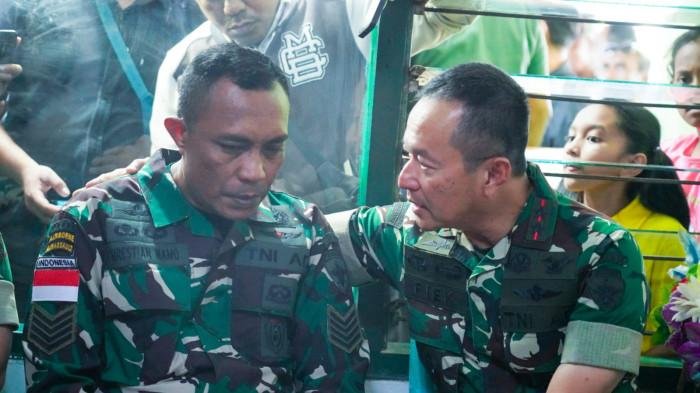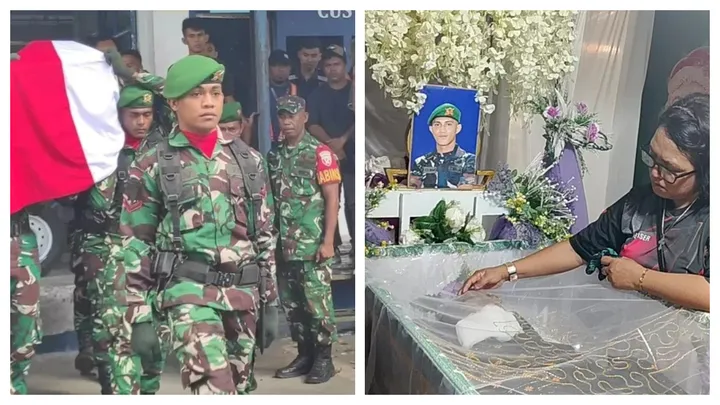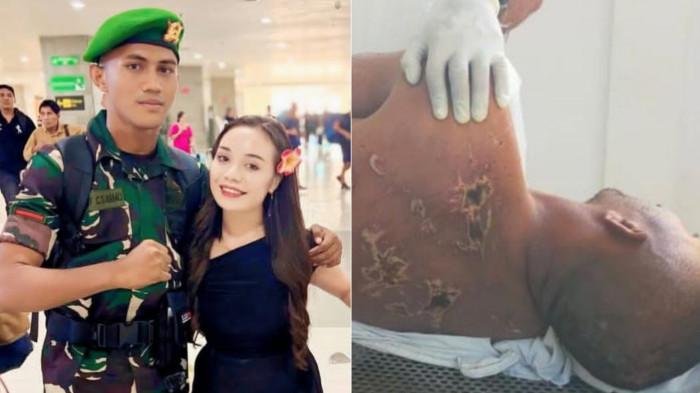A deadly hazing case exposes Indonesia’s military culture of violence, homophobia, and institutional impunity
Kupang, Indonesia – The torture and death of 22-year-old Indonesian soldier Prada Lucky Chepril Saputra Namo has ignited a firestorm of criticism against the country’s armed forces, revealing not just a case of extreme hazing, but a system that enables abuse—particularly against those accused of being LGBT.
From Accusation to Execution
Military documents and witness testimonies outline a harrowing sequence of events:
-
July 27, 2025: Prada Lucky was accused of “sexual deviation” (LGBT conduct) without formal charges or evidence.
-
July 28: Fearing violence, he fled custody but was captured and returned to the barracks.
-
July 30: A nighttime beating by four soldiers left him with internal bleeding.
-
August 2: He began vomiting blood but was only given basic care.
-
August 6: He died from multi-organ failure, his kidneys and lungs destroyed.
“They kept hitting him because they thought he was pretending to be sick to avoid duties,” said his sister, Lusi Namo. “By the time the hospital got him, it was too late.”
Homophobia as a Weapon
While Indonesia’s military officially bans discrimination, the case highlights how unproven LGBT allegations are used to justify brutality:
-
No formal investigation was conducted into the “sexual deviation” claim before beatings began.
-
Senior officers allegedly ignored early signs of torture, only intervening with weak warnings.
-
Medical neglect: Despite visible injuries, Prada Lucky was denied proper care for days.
“This wasn’t just hazing—it was a lynching enabled by a culture that treats LGBT soldiers as subhuman,” said Andreas Harsono of Human Rights Watch Indonesia.

A Global Military Problem
Indonesia is not alone in this crisis. Similar cases have emerged in:
-
Russia (dedovshchina hazing deaths)
-
South Korea (LGBT soldier suicides)
-
Egypt (military persecution of queer personnel)
Yet, unlike those nations, Indonesia’s military (TNI) remains largely exempt from civilian oversight, complicating justice efforts.
The 20 Accused: Names and Ranks
Military police have identified 20 suspects, including one officer. Below is the list of alleged perpetrators and their roles:
1. Beatings with Rubber Hoses
-
Letda Inf Thariq Singajuru (Junior Officer)
-
Sertu Rivaldo Kase
-
Sertu Andre Manoklory
-
Sertu Defintri Arjuna Putra Bessie
-
Serda Mario Gomang
-
Pratu Vian Ili
-
Pratu Rivaldi
-
Pratu Rofinus Sale
-
Pratu Piter
-
Pratu Jamal
-
Pratu Ariyanto
-
Pratu Emanuel
-
Pratu Abner Yetersen
-
Pratu Petrus Nong Brian Semi
-
Pratu Emanuel Nibrot Laubura
-
Pratu Firdaus
2. Bare-Handed Assault
-
Pratu Petris Nong Brian Semi
-
Pratu Ahmad Adha
-
Pratu Emiliano De Araujo
-
Pratu Aprianto Rede Raja
Will There Be Real Accountability?
Despite arrests, activists doubt justice will be served:
-
Military courts often deliver light sentences for abuse cases.
-
No civilian trial: The TNI handles its crimes internally.
-
LGBT stigma may weaken public sympathy for the victim.
“If Indonesia wants to modernize its military, it must first confront its culture of violence,” said a UN Human Rights spokesperson.





